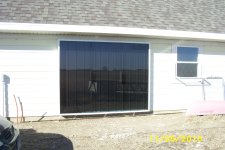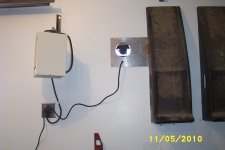newbury
Super Star Member
- Joined
- Jan 8, 2009
- Messages
- 13,592
- Location
- From Vt, in Va, retiring to MS
- Tractor
- Kubota's - B7610, M4700
And a knowledgeable trusted residential structural engineer.<snip>
However, if I was buying a house with a PV system already installed, I would be very reluctant to pay extra for it unless 1) I really understood how it worked, 2) I calculated how much money it could save me, and 3) I had it checked out thoroughly by an informed electrician.
<snip>
For those who weren't around in 1984 - There was a BIG government tax incentive for "energy efficiency". Contractors, good and bad, flocked to it. Around Northern Virginia there was a big push for solar hot water heaters on the roof.
Now I'm not a big fan of putting holes in my roof and running water thru it, but a lot of people bit the bait.
A contractor would bid a $10,000 system for $1,000 worth of parts, $2,000 worth of labor (if it was done right) and $7,000 worth of smoke to blow up a part of your body that rhymes with a former planet. After tax rebate etc. IF IT WORKED AS PROMISED you had a $3,000 system for $5,000 out of pocket but you had to pay $10,000 up front. They sprung up all over my neighborhood.
They lasted about 5 years before they were started being torn down. I'm pretty sure they are all gone today.
I can envision a lot of poorly installed PV systems being the same. Contractors gone and the roof caves in.

